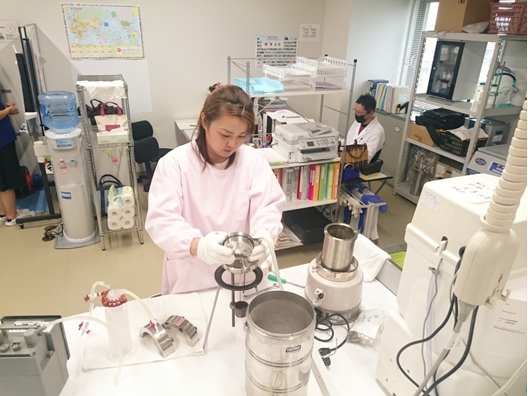Group Introduction: Tarachine — Mothers’ Radiation Lab Fukushima
Five years has already passed since November 13, 2011, when Tarachine was established. We started with the measurement of cesium 134 and 137 in food. Since then, we have expanded the scope of our activities. The measurement of some radionuclides within the human body using a whole-body counter, the measurement of strontium 90 and tritium, research on seawater off the shore of the Fukushima Daiichi NPS, thyroid testing, and recreation programs. Located in a contaminated area, we have continued with these activities out of necessity. We measure everything in the surroundings of the children, including water, soil, materials, seawater, airborne dust, and dust collected in vacuum cleaners, as well as food. The number of years required for restoration after the nuclear accident is unknown. Some say 50 years, others say 100 years. Taking so many years means that work involving exposure to radiation needs to be done not only by today’s adults but also by future generations. As the adults of the present day, we are handing over an onerous legacy to today’s children, who bear absolutely no responsibility for the accident. It is an adverse legacy, which will affect their health and life. When this notion comes to our mind, we are faced with a feeling of helplessness for our inability to resolve the problems, however hard we commit ourselves. We at Tarachine are determined to do everything we can do to help change the future for the better, even if a little, instead of giving up.
In May 2017, we are going to open a medical clinic to support the health of the children. The March 11, 2011 nuclear accident deprived us of a tremendous number of things that we can never bring back. We are living now on the basis of the things we have lost. The purpose of opening a clinic is not to lose anymore that is precious to us as well as to support and protect the children’s health. It will be the first NPO-run clinic in Japan. We are currently not sure how much we can do, or even what we can do, but we are living each day, with a determination to do anything we can for the sake of the children’s health and a better future.

